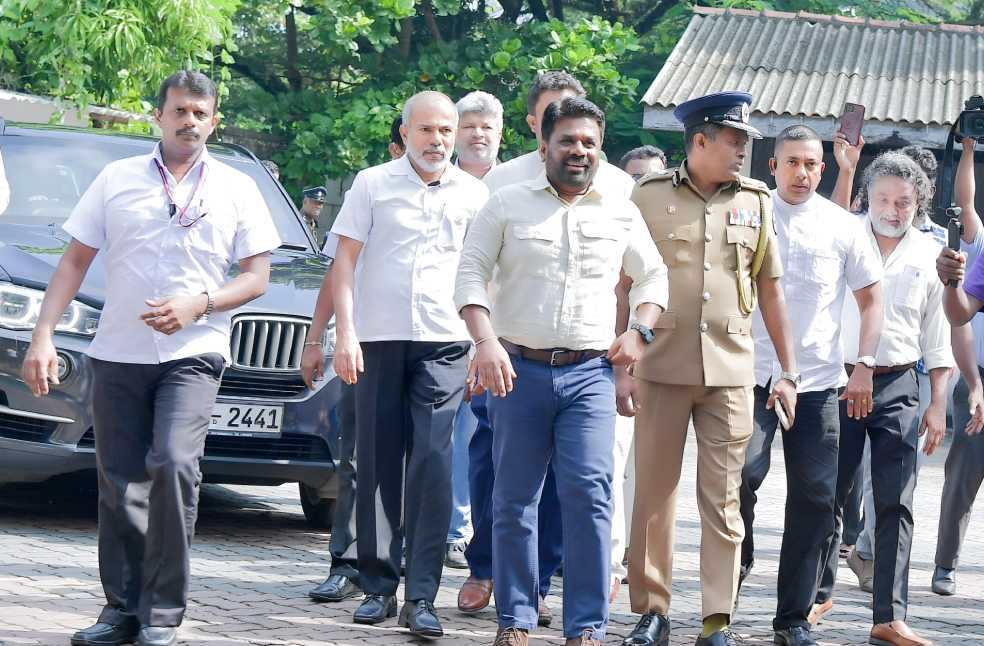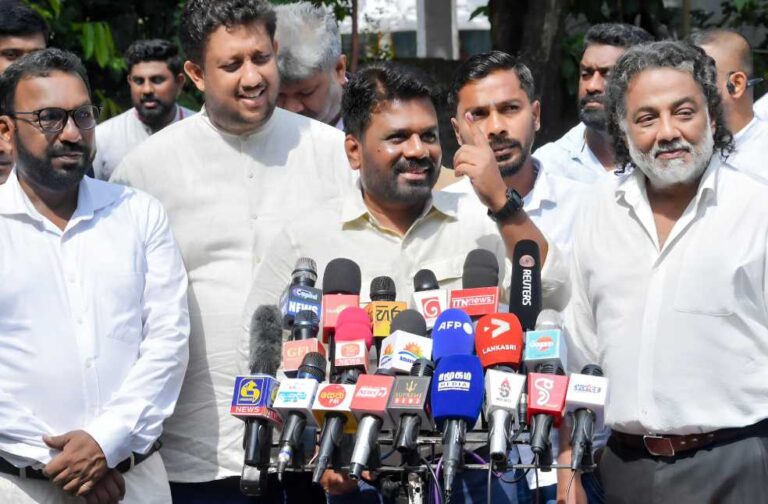Colombo, Sri Lanka: Abdul Rahuman Seyyadu Sulaiman, a 56-year-old resident of Colombo, has sought to draw attention to the grievances of his community as Sri Lankan President Anura Kumara Dissanayake exited the Abeysingharama Temple polling station in Maradana.
Sulaiman urged Dissanayake to stop and listen, emphasising the need for justice for Sri Lanka’s Muslim population, which he says was denied during the COVID-19 pandemic, particularly in the cremation of a baby. The police intervened, asking Sulaiman to leave the venue.
Sulaiman’s call for justice echoes the sentiments of many in Sri Lanka, where Dissanayake’s National People’s Power (NPP) won a decisive victory in the recent parliamentary election. Securing 159 seats out of 225, the NPP achieved a comfortable two-thirds majority, a historic first under Sri Lanka’s proportional representation system since 1977. This outcome allows Dissanayake to pass legislation without relying on coalition partners.
Political analyst Aruna Kulatunga highlighted the importance of the election, noting that the NPP’s clear majority conveys a rare opportunity for unity across Sri Lanka’s fractured political landscape. The NPP, a coalition led by Dissanayake’s Marxist-leaning Janatha Vimukthi Peramuna, includes civil society groups and other organisations that emerged during the 2022 protests against former President Gotabaya Rajapaksa.

The rise of the NPP follows the economic collapse under the previous government, which has elevated public expectations for change. Vasantha Raj, a daily wage earner, expressed hope for an end to years of stagnant political performance and corruption. Meanwhile, MF Sareena, a caregiver for her elderly and ill mother, expressed a common sentiment of despair over high food prices and unaffordable medicines, with hope pinned on the NPP for relief.
In the north, where the Tamil community traditionally supported Tamil parties, the NPP garnered substantial support. Ahilan Kadirgamar, a senior lecturer at the University of Jaffna, noted a wave of enthusiasm among Tamil voters for the NPP, discouraged by the failure of their own political leaders to address their community’s needs.
The NPP now faces the challenge of delivering on its promises, particularly in addressing the concerns of Sri Lanka’s Tamil and Muslim minorities, who have frequently been targets of xenophobia. As the government prepares to implement its agenda, including a referendum on a new constitution, it must navigate the complex issues inherited from decades of political and ethnic conflict.



